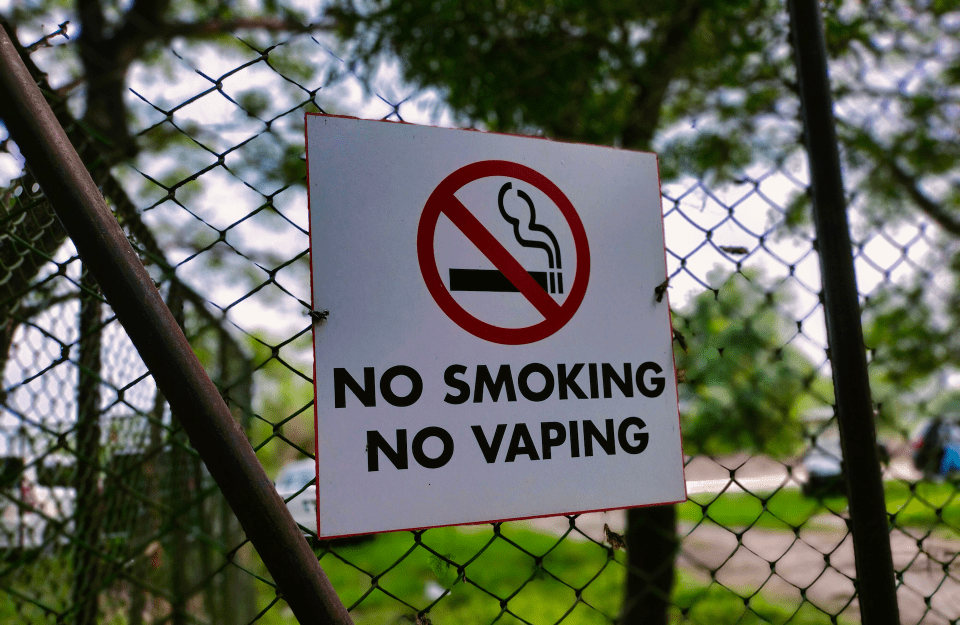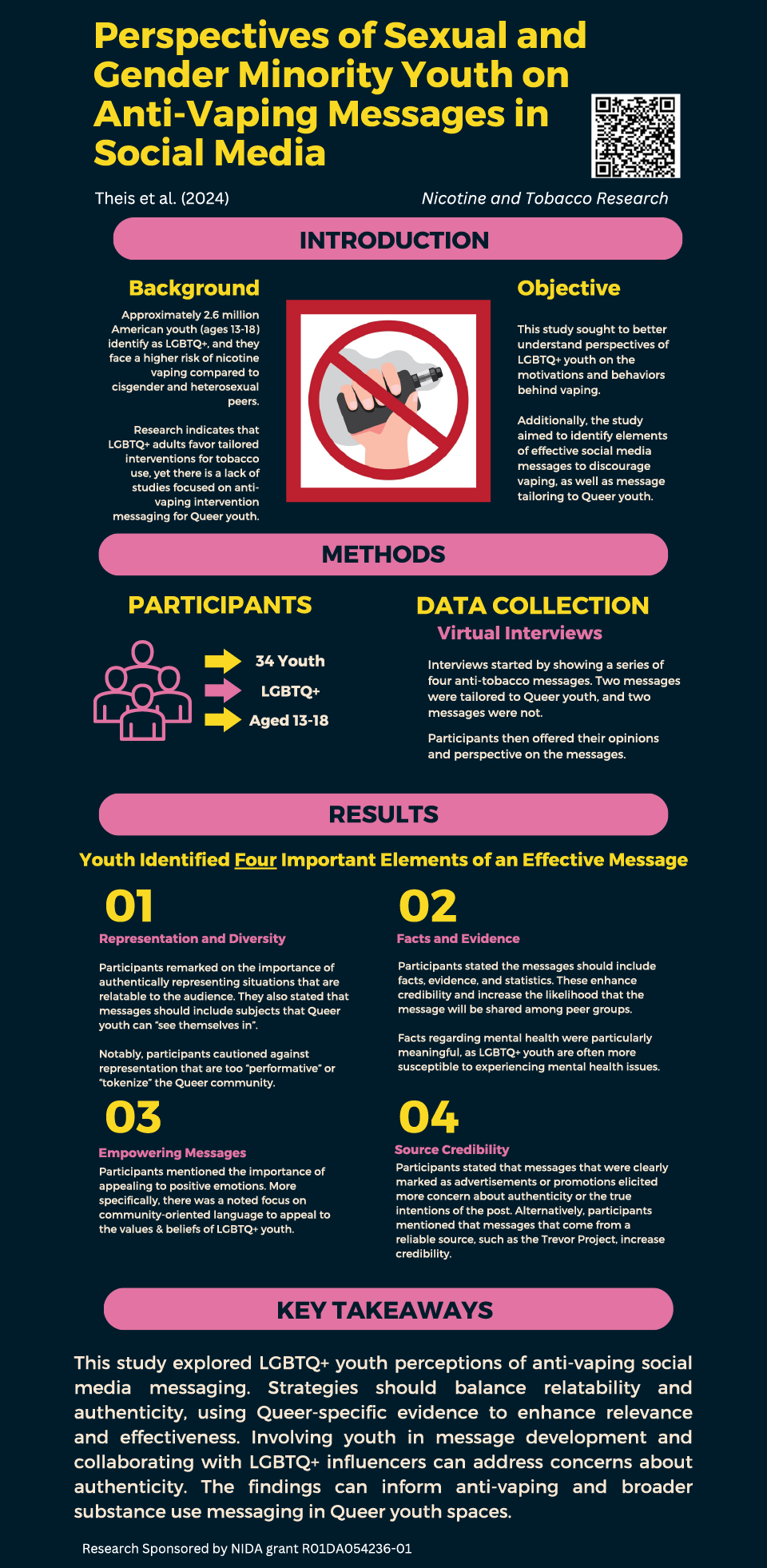Research in Brief: Perspectives of LGBTQ+ Youth on Anti-Vaping Messages in Social Media
To understand how to reduce vaping among LGBTQ+ youth, Annenberg researchers spoke to young Americans about anti-vaping messages on social media.

Approximately 2.6 million American teenagers identify as lesbian, gay, bisexual, transgender, or queer. These youth are at significantly higher risk for using tobacco and nicotine vaping products than their heterosexual peers.
As part of Project SMART, a study to test the effectiveness of a tailored social media intervention to prevent vaping initiation among LGBTQ+ youth, health communication researchers at the Annenberg School for Communication and colleagues recently published a paper detailing LGBTQ+ youth's thoughts on social media anti-vaping messages in the journal Nicotine & Tobacco Research.
Here’s a quick summary of their findings, written by the researchers, which include Professors Andy Tan and David Lydon-Staley as well as doctoral students Kate Okker-Edging, Brittany Zulkiewicz, Danielle Clark, and Health Communication & Equity Lab researchers Sixiao Liu, Jenine Pilla, and Elaine Hanby.
What is the problem being addressed?
Sexual and gender minority (SGM) youth (which includes youth who identify as lesbian, gay, bisexual, transgender, and queer) are more likely to vape than cisgender heterosexual youth. While social media can help prevent vaping, anti-vaping messages need to be tailored and relatable to resonate with SGM youth. This study explored how to tailor anti-vaping messages for SGM youth.
How was the study conducted?
This study interviewed 34 SGM youth to learn about their thoughts on vaping and their responses to examples of social media anti-vaping messages. Participants highlighted 4 main components for effective anti-vaping campaigns for SGM youth: (1) the importance of genuine SGM representation and diversity, (2) using relevant facts and evidence, (3) including empowering messages, (4) and using credible sources.

What did we learn from this study?
Participants stressed the importance of authentic SGM representation in anti-vaping messages, but also noted that overly obvious representation may be seen as tokenizing. Participants recommended partnering with known LGBTQ+ influencers who could promote or share anti-vaping messages on their social media platforms. Participants also recommended using culturally tailored language, including statistics that are specific to SGM youth. Finally, they suggested using empowering and community-oriented language that reflected beliefs of and experiences of LGBTQ+ community members.
Why is this study important?
These insights can help design anti-vaping campaigns that are more relevant and effective for SGM youth, and potentially make a bigger impact on reducing vaping among this group.
"Perspectives of Sexual and Gender Minority Youth on Anti-Vaping Messages in Social Media" was published in Nicotine & Tobacco Research and authored by Ryan P. Theis (University of Florida Health), Jenine Pilla (Annenberg), Kate Okker-Edging (Annenberg), Kathryn Pluta (University of Florida Health), Jennifer H. LeLaurin (University of Florida Health), Elaine Hanby (Annenberg), Brittany Zulkiewicz (Annenberg), Danielle Clark (Annenberg), Dima Bteddini (University of Florida Health), Stacy Wright (University of Florida Health), Alexandra Fahnlander (University of Florida Health), Sabra Katz-Wise (Harvard University), David Lydon-Staley (Annenberg), Wasim Maziak (University of Florida Health), Brittany Charlton (Harvard University), NFN Scout (National LGBT Cancer Network), Ana Machado (CenterLink), Bob Gordon (California LGBT Tobacco Education Partnership), Julia Applegate (Ohio State University), Jennifer Potter (Harvard University), Andrew Strasser (Penn Medicine), Sixiao Liu (Annenberg), Ramzi Salloum (University of Florida Health), and Andy Tan (Annenberg).



